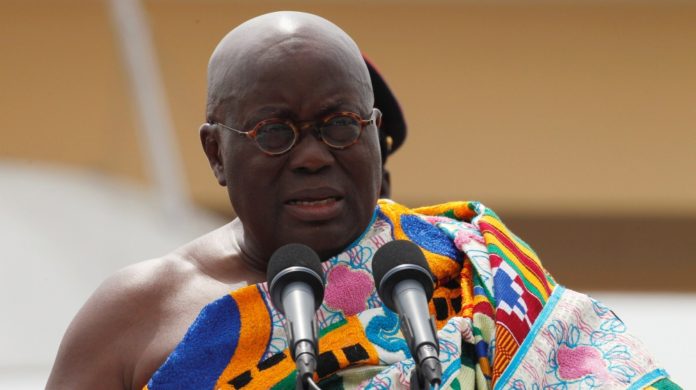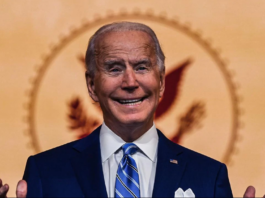ACCRA—We got our well-deserved comeuppance, didn’t we? And as usual, the BBC and Aljazeera are making a ‘dissention of a doit’, making a sarcastic jest of our chronic inability to ever get it right, and mocking our consistent inconsistencies when we ever get it right. Theirs is the standard; ours is simply a dud.
In democratic governance, we are only deemed to have gotten it right when we get close to what has come to be accepted as international best practices. That is to say we must see things through the prism of their leaders and imitate how they do things. The quintessential African way of doing anything never meets the international standards. To get us to the path of correctness, we must fit into popular stereotypes.
Whose words?
The occasion was the inauguration of a new president of the Republic of Ghana. The President’s first ever speech to the nation is usually much anticipated. An otherwise great speech by President Nana Akufo-Addo was later criticized when portions of the address were found to have been lifted verbatim from some American presidents. The Director of Communications at the Presidency, Eugene Arhin, has publicly apologized for the ‘oversight,’ conceding that they had failed to reference the quotes.
The spring had been wound up tight; it would uncoil of itself. The international media quickly set their judgement in motion, mocking the expensive mistake and making the masterful delivery of a well-crafted speech look like the misread version of a nursery rhyme. Aljazeera and BCC juxtaposed video footage of newly inaugurated President Akufo-Addo with two former American presidents, as the Ghanaian leader heartily repeated the words of the Americans in apparent plagiarism.
Former Diplomat and columnist K.B. Asante says he is not surprised that the speechwriters of the new government followed the tradition of plagiarizing the words of other people. He surmises: “It happened recently in America and elsewhere–you see some of these sayings are such that…they are so good you are tempted to use them.”
The good speech
Well, unlike Mr. Asante, I was very surprised that any portion of an important speech on such a historic occasion could be borrowed from another source. Indeed, we didn’t need to quote anybody, especially not from beyond our borders, on the occasion. We have a lot of aphorisms and witticisms in our folklore and oral tradition. The Bible is always a guiding principle; we are free to use any book or verse without permission.
I was also surprised because Nana Addo is surrounded by very able and capable men and women, any of whom could have done a beautiful speech without looking at any previous examples–even as part of initial research. Gabby Asare Otchere-Darko has superb writing and research skills to pin this down. Speechwriting, however, is a special skill which requires a masterful appreciation of the public worth of words, intricately woven into the fabric of ideas and constructs–to inform, excite and even bamboozle.
The speechwriters of the new president were alleged to have borrowed generously from former Presidents George H.W. Bush and Bill Clinton, and Nigerian President Muhammadu Buhari. It is also alleged the words attributed to Bush had earlier been used by Woodrow Wilson (1913-1921), the 28th American President: “I ask you to be citizens: citizens, not spectators. Citizens, not subjects. Responsible citizens, building communities of service and a nation of character.”
Secondhand scholarship
Secondhand scholarship manifests in placing greater premium on the intellectual and creative works of other people, usually thinkers we admire and revere, while denigrating ours as too familiar and therefore not effective. President George Bush may borrow from Woodrow Wilson, and Barack Obama from Deval Patrick, because they are in each other’s thinking and can complete one another’s thoughts, being products of the same American environment. They will not quote Kwame Nkrumah in their speech.
Certainly, we do not lack quotes. The works of Wole Soyinka, Ola Rotimi and Martin Owusu are full of ‘quotable quotes.’ On the beautiful occasion of the investiture of a Ghanaian President, where the two special guest speakers are West African presidents, we would have served our nationalistic interests better by invoking African proverbs to accompany the delicious sounds of our Atumpan and Fontomfrom drums.
Of course, African proverbs are not posh enough, unless they are rendered from an Anglo-Saxon tongue. Maybe we cannot blame the Western press for deriding us when we copy them wrongly. The BBC and Aljazeera would not have bothered to report the news if President Akufo-Addo had failed to credit Chinua Achebe or Ola Rotimi for their quotes. They do not care about the political metaphors in ‘Things fall Apart’ or the political role of the gods in ‘The Gods are not to Blame.’
Steps in speechwriting
I write speeches for a living. It is not a particularly difficult undertaking. At the communication school, we were taught to follow some simple steps. First, a speechwriter must be familiar with the thought patterns of the person for whom the speech is written. The words must sound like them, and must issue from their soul. Who are they likely to quote on a normal day? What are their pet phrases? Are they good with anecdotes? Nana Addo will quote J.B. Danquah any day. And he did.
Second, the speechwriter should get the input of the person they are writing for. Former American President Barack Obama is said to have edited his speech with his young speech writer, Jon Favreau, until the final minute to the delivery. Some of the editing took place on Air Force One. So when Obama says ‘Yes we Can,’ you know he could, because that statement had been fact-checked and edited.
The research stage is where the speechwriter compares other speeches and studies familiar or unfamiliar trends. We may come across a beautiful idea or a succinct rendition of that idea. You may borrow but don’t pass it off as yours. That is stealing.
Overzealous speechwriters (as Buhari described officials who embarrassed him with lines plagiarized from Obama) tend to infest their speeches with epoch-sounding ideas, to appear scholastic and extraordinary. Often, they sound extraordinary because their ideas are stolen from an ordinary source.
So what happens to the person who wrote Akufo-Addo’s speech? Well, let’s put a sock in it. The BBC and Aljazeera may excuse us this time. We have had our comeuppance.





Kwesi Tawiah-Benjamin brings us a sophisticated and literary addition to our discourse on what it means for Nana Akufo-Addo to have ‘plagiarized’ speeches from two American leaders at his inauguration. You would find some advice on the challenges of speech-writing, and also reasons why our President, and in fact a significant number of folks have not taken the matter as seriously as it has been portrayed in some major news outlets.
In any case, a lesson–whether it was okay or needless–here is well-learned if not locally then within the international community for a start. We hope our speeches reflect who we are more than mimic the rhymes of distant lands. That said, enjoy this fine piece.